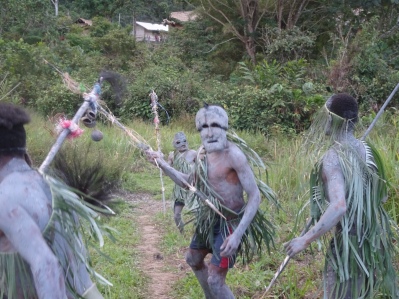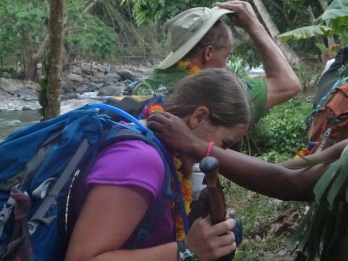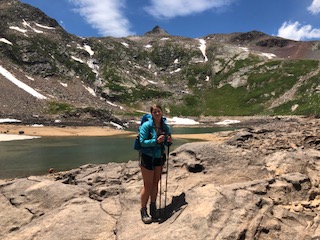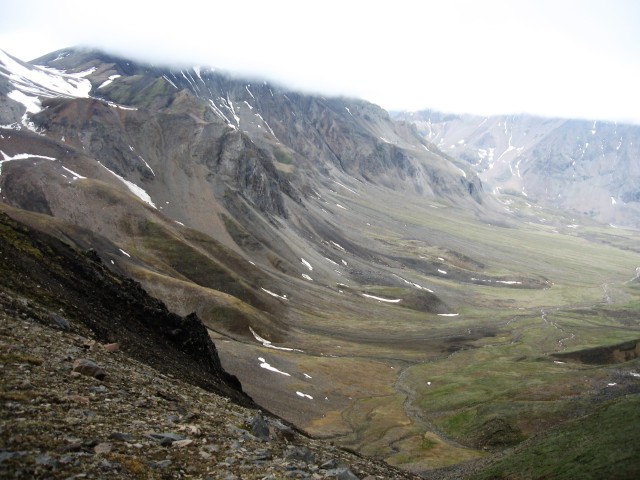On our trek across Papua New Guinea, we walked 8 hours every day through jungles, through rivers, through mud, and up and down mountains. The landscape was rugged and pristine. But wh at made the trek even more meaningful was the isolated villages along the way. As we approached the villages, children covered in mud would spring from dense thickets of brush, shrieking as they charged us with spears, sticks, and machetes. At first it frightened us, but it was a ritual the children loved, and one we encountered each and every time. By the end of our trek we came to expect it and were no longer alarmed.
at made the trek even more meaningful was the isolated villages along the way. As we approached the villages, children covered in mud would spring from dense thickets of brush, shrieking as they charged us with spears, sticks, and machetes. At first it frightened us, but it was a ritual the children loved, and one we encountered each and every time. By the end of our trek we came to expect it and were no longer alarmed.
 Once we entered the villages, which were often nothing more than a dozen thatch huts surrounding a dirt clearing, the colorful ceremonies began. We’d walk under an arch made of vines, leaves, and petals while women and men, adorned in red paint, headdresses made from bird feathers, and pig tusk necklaces pounded on their kundu drums. Then the women and young girls of the village would drape flower necklaces over our heads and lead us to the center of the village where the real singing, dancing, and drumming began. That was followed by a series of speeches, which were translated by one of our native guides.
Once we entered the villages, which were often nothing more than a dozen thatch huts surrounding a dirt clearing, the colorful ceremonies began. We’d walk under an arch made of vines, leaves, and petals while women and men, adorned in red paint, headdresses made from bird feathers, and pig tusk necklaces pounded on their kundu drums. Then the women and young girls of the village would drape flower necklaces over our heads and lead us to the center of the village where the real singing, dancing, and drumming began. That was followed by a series of speeches, which were translated by one of our native guides.
 The gist of the speechess was that the villagers looked forward to seeing more outsiders and to the prospect of eco-tourism. Then the prayers began. After the last blessing, they lavished us with food and coconuts and treated us to more dancing. Though exhausted we felt lucky to be among the kindness and generosity of our Papua New Guinean friends, who had so little but gave so much.
The gist of the speechess was that the villagers looked forward to seeing more outsiders and to the prospect of eco-tourism. Then the prayers began. After the last blessing, they lavished us with food and coconuts and treated us to more dancing. Though exhausted we felt lucky to be among the kindness and generosity of our Papua New Guinean friends, who had so little but gave so much.

 In
In 